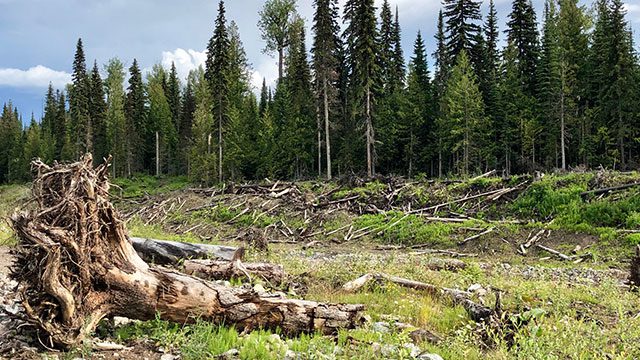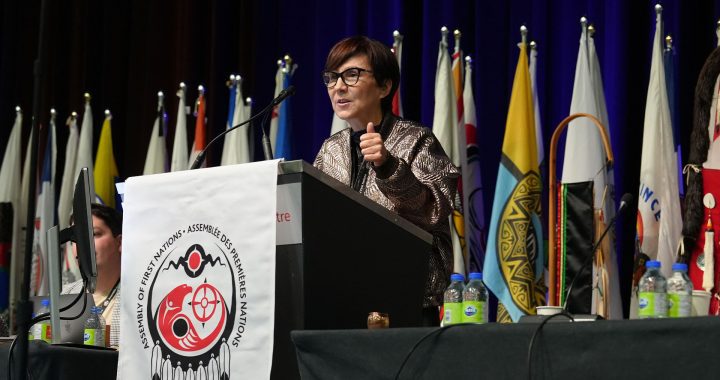Great-grandparents Mary-Anne and Gordon Ballantyne have been trying to stay warm this winter while living in a camper trailer after losing their home to a fire.
The 75-year-olds care for 19 grandchildren and great-grandchildren on Peter Ballantyne Cree Nation (PBCN) in Saskatchewan, about 450 kilometres north of Prince Albert.
“Right now, my grandparents and their grandchildren are facing extreme hardship,” said Mikayla Renas, the Ballantyne’s granddaughter, who spoke to APTN News from Edmonton.
“They are living in conditions that nobody should (be), especially the elderly with their health conditions.”
The Ballantynes both have diabetes. The family says they have been on the list for a new house for a number of years.
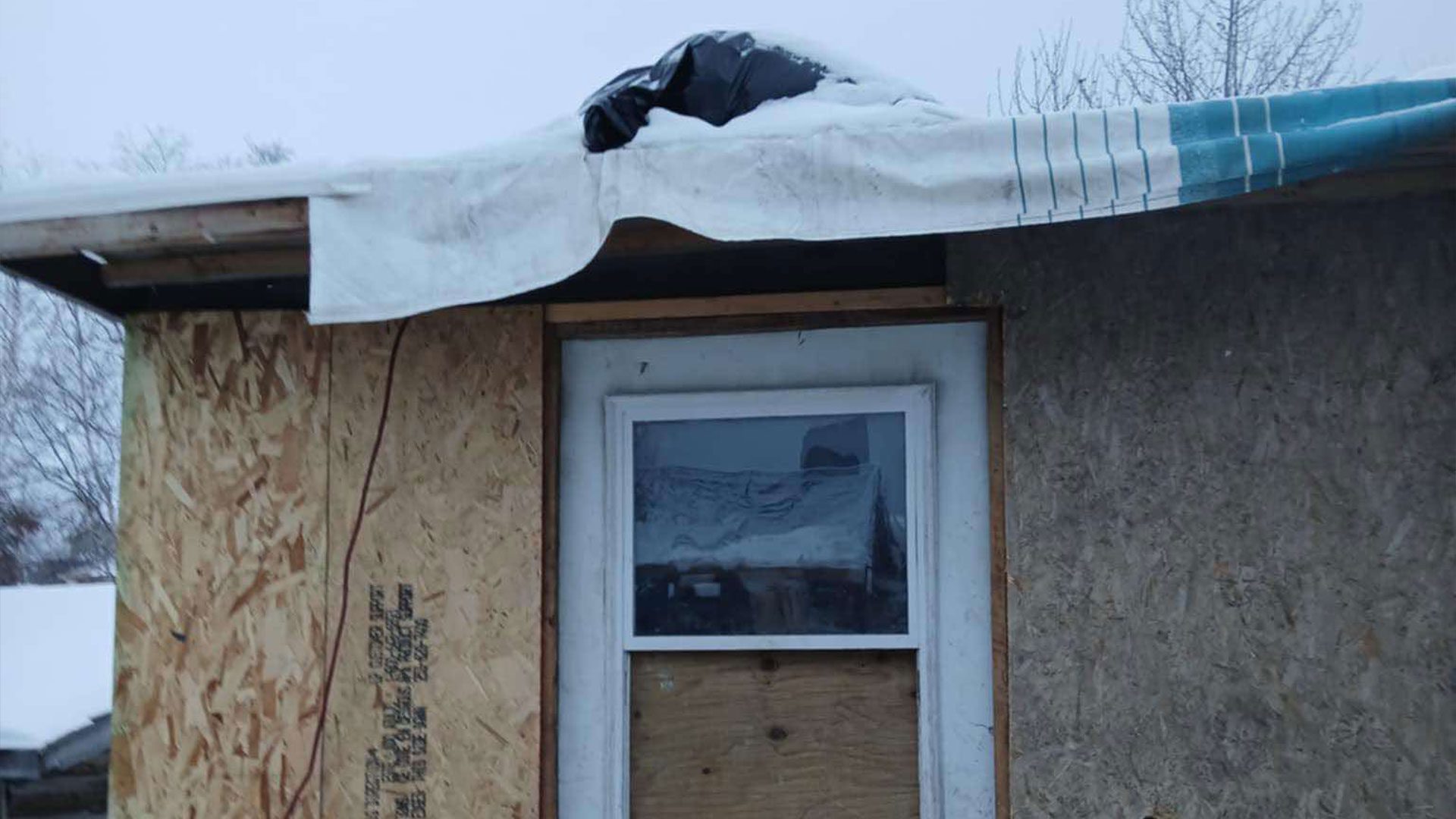
Three toddlers live with them, while 16 other grandchildren live in a nearby house.
In cellphone video sent to APTN, the Ballantynes are seen living in the camper with only a wood stove for heat. The stove is in a room made out of plywood that leans against the camper.
The family says the stove can’t keep the trailer warm enough, and the walls and floors remain freezing cold. The camper has no running water or electricity. The couples stores meat in a cold space outside where local dogs can get to it.
Vice-Chief Justin Halcrow said the band council has offered to help the couple numerous times.
“In the immediate aftermath (of the fire), PBC(N) took swift action to provide emergency support, including $6,000 for essentials like clothing and food,” he said in a statement to APTN. “Temporary accommodations were arranged in a full basement unit, offering them shelter and safety.
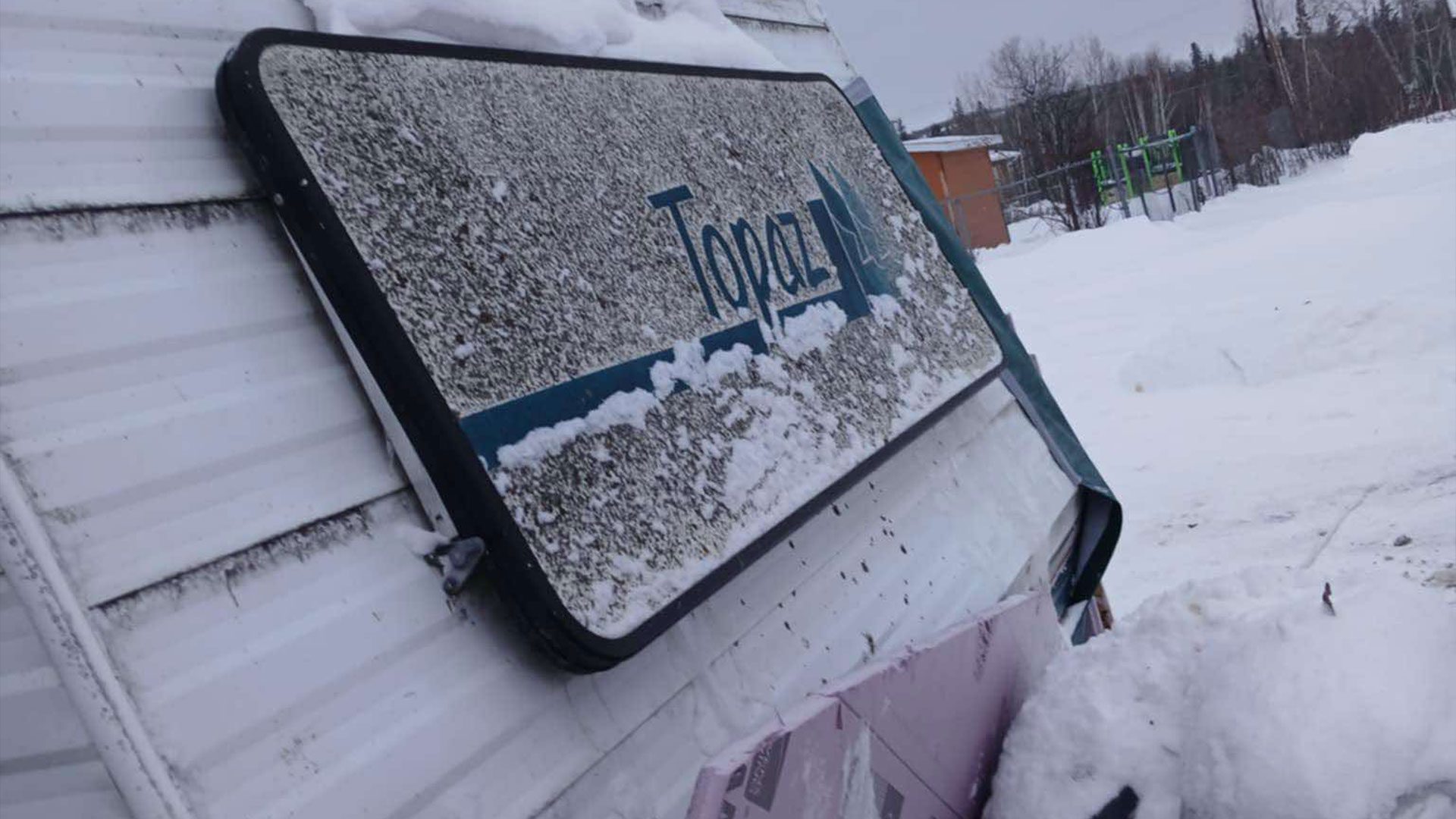
“However, after two weeks, the (Ballantynes) decided to move out, seeking an alternative to be closer to their original home site.”
Renas disputed the kind of help and amount of funds the Nation provided. She said her grandparents purchased the trailer with their pension money.
“My grandparents, who should be living in stability, are instead forced to live in conditions that are taking a toll on their physical and mental well-being,” she said.
“Their health issues are worsening due to the stress and cold, and the lack of basic needs. No one should be living like this, especially our elders.”
In the video, a family member points out other makeshift homes in the community built with used lumber and pallets where nine people sleep; there is little to no protection from the cold; and each place is heated by a small wood stove. A freezer in one home has power to keep the groceries cold thanks to a neighbour, but the family member says the power continues to fail.
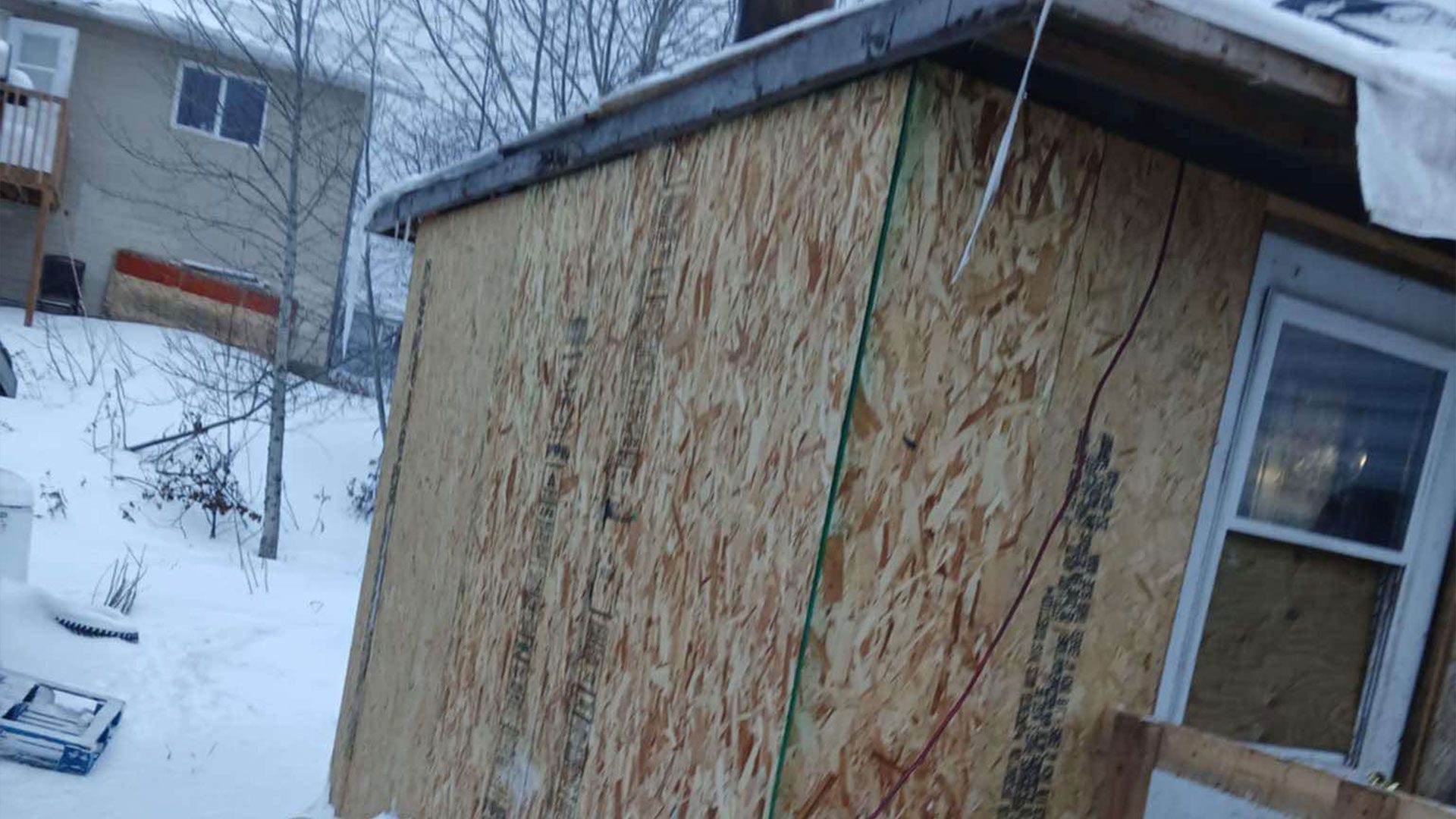
What looks like a plywood shed has been built onto a camper to hold a woodstove on a First Nation in northern Saskatchewan. Photo: submitted
The residents use a simple pail as a toilet.
Renas said after their home of 30 years burned down, her grandparents lived in tents and moved in with a family member before receiving the camper.
“Our elders are the hearts of our community and leaving them in this state of neglect is unacceptable,” she noted.“We need transparency, accountability and immediate action to ensure they are not left behind.”
Halcrow said council donated the camper as a short-term solution while working on a permanent housing plan.
He said the Nation also offered the Ballantynes a fully renovated unit with new flooring, siding and a wood stove. It also offered to relocate them to Prince Albert with the help of Jordan’s Principle funding, but the family declined all of the offers.
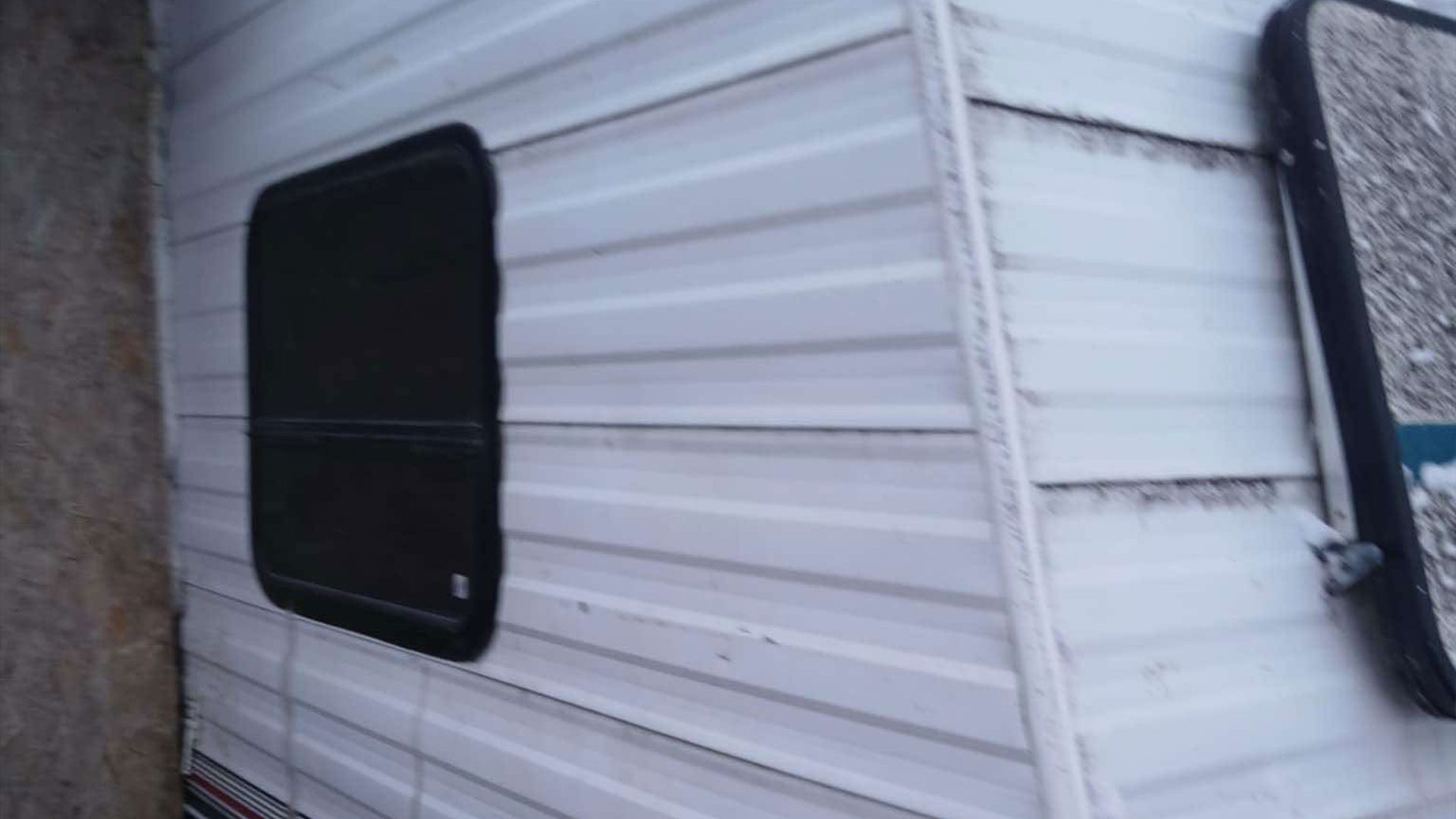
“(The Ballantynes expressed) their desire to remain in the community near their original home,” Halcrow said in the statement. “This situation is a reflection of the broader housing crisis … with over 3,900 band members and only 335 housing units.
“The community of nine First Nations that comprise PBCN faces chronic overcrowding and limited infrastructure,” the statement added. “These challenges are compounded by safety concerns and limited availability of contractors willing to work in the area.”
Halcrow noted that increased violence in recent years has contractors and service providers refusing to work in the community with some requiring security escorts to complete their jobs, including SaskPower workers.
He said that hindered PBCN’s progress – not only in helping the Ballantynes, but completing other housing and infrastructure initiatives critically needed in the community.
Renas agreed.
“The broader challenges in our communities such as the violence and drugs, it adds another layer of worry,” she said. “The systemic issues make it harder for families like mine to get the help that they need. It feels like there is no sense of safety or urgency to address these problems.
“We need leaders at all levels locally, provincially and federally to come together to create real change,” she added. “Without action, our families will continue to suffer and the cycle of hardship will persist and continue.”
She explained the grandchildren and great-grandchildren are living as a group because they prefer to stay together with the elders after an adult family member passed away. And, with the housing crisis, there isn’t anywhere else for them to live in the community.
Following APTN’s reporting, the family says the Ballantynes received the help they were looking for and accepted the offer to stay in a temporary home.





